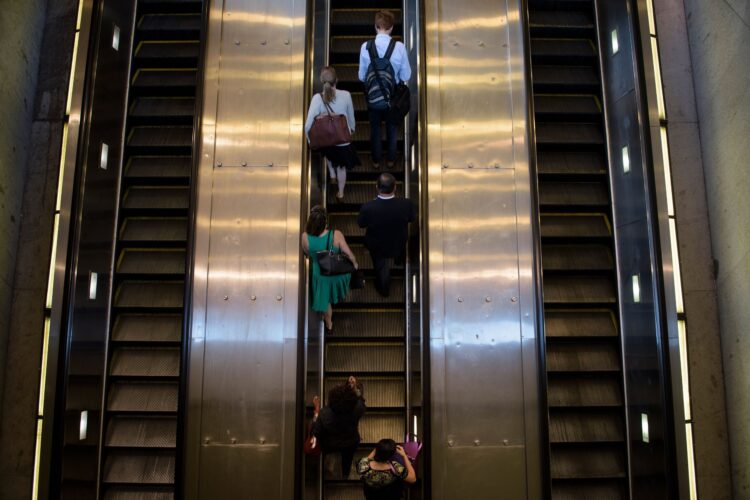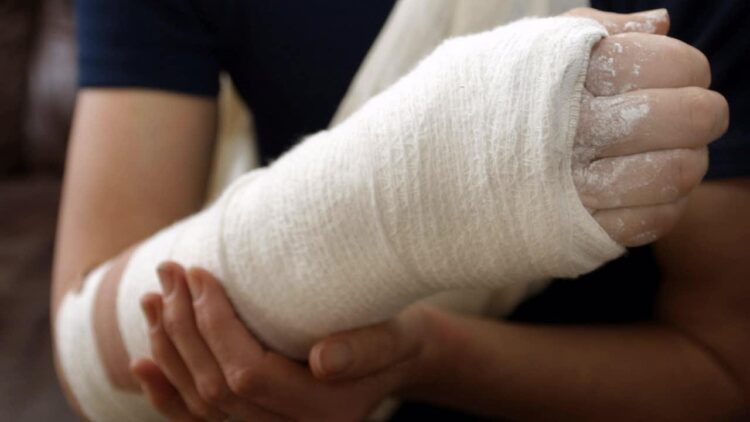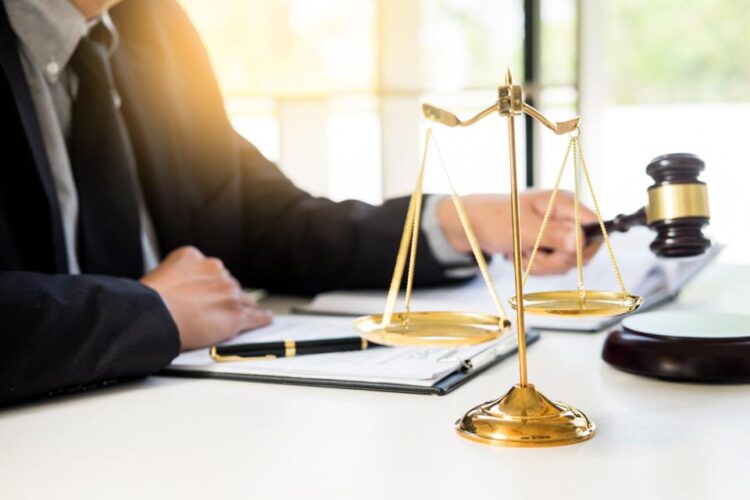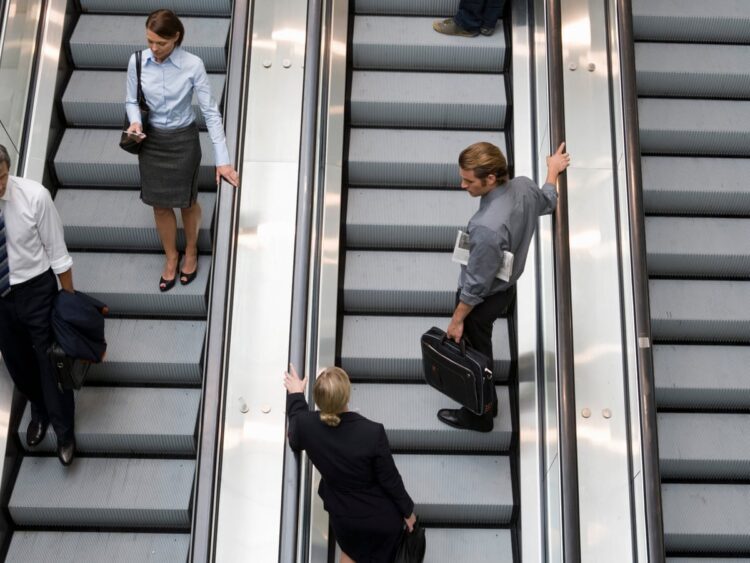Escalator accidents, while not as common as other types of accidents, can lead to serious injuries and even fatalities. These accidents can occur due to various factors, such as mechanical malfunctions, poor maintenance, design flaws, or improper use by passengers. It is crucial for individuals to be aware of the legal steps to take if they find themselves injured in an escalator accident.
This article will briefly overview escalator accidents and outline the importance of understanding the legal process involved in seeking compensation for injuries sustained in such incidents. By being well-informed, victims can protect their rights and ensure they receive the support and compensation they deserve.
Page Contents
Common Causes of Escalator Accidents

Source: newsweek.com
1. Mechanical malfunctions
Mechanical malfunctions are one of the primary causes of escalator accidents. These can include issues with the escalator’s gears, chains, or motor. Malfunctions may result in sudden stops, unexpected changes in speed, or even a complete reversal of the escalator’s direction, causing passengers to lose their balance and potentially suffer injuries.
2. Poor maintenance
Escalators require regular maintenance to ensure their safe operation. However, poor maintenance practices can lead to various problems, such as worn-out parts, loose components, or debris buildup. These issues can cause the escalator to malfunction, posing a risk to passengers and potentially leading to accidents.
3. Design flaws
In some cases, escalator accidents can be traced back to design flaws. These might include insufficient safety features, improper spacing between steps, or inadequate handrails. Design flaws can make it difficult for passengers to maintain their balance or safely navigate the escalator, increasing the likelihood of accidents.
4. Improper use by passengers
Lastly, improper use by passengers can contribute to escalator accidents. Examples of improper use include standing too close to the edge of the steps, attempting to walk up or down a moving escalator, or carrying large or bulky items that can obstruct the passage of other passengers. Such behaviors can result in passengers losing their balance and potentially causing accidents.
Types of Injuries Sustained in Escalator Accidents

Source: orthoinfo.aaos.org
1 . Cuts and lacerations
Escalator accidents can result in various types of injuries, including cuts and lacerations. These can occur when a person’s clothing, shoelaces, or body parts get caught in the escalator’s moving parts. Depending on the severity, cuts and lacerations may require stitches, and in some cases, even surgery.
2. Broken bones
Broken bones are another common injury sustained in escalator accidents. When a person falls or gets caught in the escalator, the impact can cause fractures in various parts of the body, such as the wrists, arms, or legs. Treatment for broken bones may involve immobilization, surgery, or physical therapy.
3. Crush injuries
Crush injuries can occur when a person becomes trapped between the escalator’s moving parts, such as the stairs and the side walls. These injuries can be severe, leading to significant tissue damage, internal bleeding, and even organ damage.
4. Amputations
In the most severe cases, escalator accidents can result in amputations. This can happen when a person’s limb gets caught in the escalator and is unable to be freed, leading to the need for surgical amputation. Amputations can have lifelong consequences, including the need for prosthetics and ongoing rehabilitation.
5. Traumatic brain injuries
Traumatic brain injuries (TBIs) are another potential outcome of escalator accidents. A TBI can occur if a person falls and hits their head on the escalator or the surrounding area. Depending on the severity, TBIs can result in a range of symptoms, including headaches, memory loss, mood changes, and cognitive impairments. Treatment for TBIs may involve medication, rehabilitation, and ongoing medical care.
Determining Liability in an Escalator Accident
Property owner’s responsibility
In an escalator accident, the property owner may be held liable if they failed to maintain a safe environment for visitors. This includes ensuring that the escalator is in proper working condition and is regularly inspected and maintained. Property owners have a duty to provide a safe environment for all visitors, and failure to do so may result in them being held responsible for any accidents that occur on their premises.
Escalator manufacturer’s responsibility
The escalator manufacturer may also be held liable for an accident if it can be proven that the escalator was defective or had design flaws that contributed to the accident. In such cases, the victim may be able to file a product liability claim against the manufacturer. Manufacturers have a duty to ensure that their products are safe for use and free from defects that could cause harm to users.
Maintenance company’s responsibility
If an escalator accident is caused by poor maintenance, the company responsible for maintaining the escalator may be held liable. Maintenance companies are expected to perform regular inspections and repairs to ensure that escalators remain in safe working condition. Failure to do so may result in liability for any accidents that occur due to negligence in maintaining the escalator.
Comparative negligence
In some cases, the victim may be found partially responsible for the escalator accident. This is known as comparative negligence. If the victim’s actions, such as improper use of the escalator, contributed to the accident, their compensation may be reduced based on the percentage of fault attributed to them. In instances where comparative negligence is a factor, it is crucial to consult with an experienced personal injury attorney to determine the best course of action for pursuing compensation.
Legal Steps to Take After an Escalator Accident

Source: forbes.com
Seek medical attention
It is crucial to seek medical attention immediately following an escalator accident. Documenting your injuries is important for building a strong case. Ensure that you follow up with medical professionals as needed to demonstrate the extent and severity of your injuries.
Report the accident
After receiving medical care, report the accident to the property owner or management. Additionally, file a report with the appropriate authorities, such as the local police or building inspector, to create an official record of the incident.
Gather evidence
Collecting evidence is essential for supporting your claim. Take photos of the accident scene, including any visible hazards or malfunctioning escalator components. Obtain contact information from witnesses who can provide statements about the incident. If possible, request surveillance footage from the property owner or management.
Consult with a personal injury attorney
Hiring an experienced personal injury attorney is vital to navigating the legal process. Discuss your case and potential compensation with your attorney, who will guide you through the necessary steps to pursue a claim.
File a personal injury lawsuit
Your attorney will help you file a personal injury lawsuit within the statute of limitations, which varies by jurisdiction. A successful claim requires proving four elements: duty of care (the defendant’s responsibility to maintain a safe environment), breach of duty (failure to fulfill that responsibility), causation (the defendant’s actions or inactions led to the accident), and damages (the plaintiff suffered injuries as a result).
Negotiating a settlement
Evaluate the value of your claim with your attorney, taking into account medical expenses, lost wages, and other damages. Engage in settlement negotiations with the responsible party, aiming to reach a fair resolution without the need for a trial.
Going to trial, if necessary
If a settlement cannot be reached, your case may proceed to trial. Present evidence in court, including witness testimony and documentation of your injuries. The judge or jury will then render a verdict or judgment, which may result in an award of damages for your injuries.
Types of Compensation Available for Escalator Accident Victims

Source: theguardian.com
Medical expenses
One of the primary types of compensation available for escalator accident victims is reimbursement for medical expenses. This can include costs associated with emergency room visits, hospital stays, surgeries, physical therapy, medications, and any other necessary medical treatment related to the accident.
Lost wages
Victims of escalator accidents may also be entitled to compensation for lost wages if they are unable to work due to their injuries. This can include both past lost wages, for the time they were unable to work immediately following the accident, and future lost wages, if their injuries prevent them from returning to their job or if they must take a lower-paying job due to their injuries.
Pain and suffering
Pain and suffering compensation is meant to address the physical and emotional distress caused by the escalator accident. This can include compensation for the actual pain experienced due to the injuries, as well as the mental anguish and emotional distress that may accompany such a traumatic event.
Emotional distress
In some cases, escalator accident victims may be entitled to additional compensation specifically for emotional distress. This type of compensation is separate from pain and suffering and is intended to address the psychological impact of the accident, such as anxiety, depression, or post-traumatic stress disorder (PTSD).
Loss of consortium
Loss of consortium compensation may be available to the spouse or partner of an escalator accident victim. This type of compensation is intended to address the loss of companionship, affection, and sexual relations that may result from the injuries sustained in the accident.
Conclusion
Recap of legal steps to take if injured in an escalator accident
In conclusion, if you are injured in an escalator accident, there are several important legal steps to take. First, seek medical attention to document your injuries and follow up with medical professionals. Next, report the accident to the property owner or management and file a report with the appropriate authorities. Gather evidence, such as photos of the accident scene, contact information of witnesses, and request surveillance footage if available. Consult with a personal injury attorney to discuss your case and potential compensation. If necessary, file a personal injury lawsuit, keeping in mind the statute of limitations and the elements of a personal injury claim. Negotiate a settlement with the responsible party, and if necessary, go to trial to present your evidence and obtain a verdict or judgment.
Importance of consulting with an experienced personal injury attorney
It is crucial to consult with an experienced personal injury attorney when dealing with escalator accidents. They can guide you through the legal process, help you gather evidence, and advise you on the value of your claim. An experienced attorney can also represent you in settlement negotiations and, if necessary, in court. By working with a skilled legal professional, you increase your chances of receiving fair compensation for your injuries and other damages sustained in the escalator accident.




